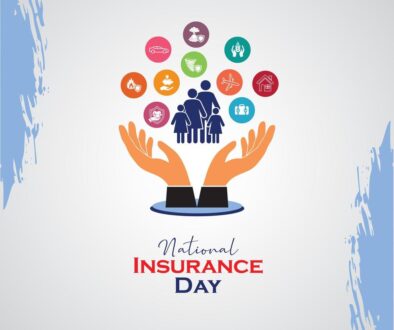June is National Safety Month
June is National Safety Month. While no one should live in constant fear, it is important to be alert and to know how to act fast in unsafe situations. Check out the safety tips below to increase your chances of safety and even survival in emergent situations.
1. Money Safety
Hide money in unexpected objects while traveling. Some great suggestions are chapstick tubes, lotion bottles, empty deodorant sticks, and even feminine hygiene products
Be sure to always secure your purse when shopping. Buckle the strap around your shopping cart, or even better—simply keep your purse or wallet on your person.
Memorize or save the cancellation numbers for all your cards.
2. Home Security
Keep your spare keys in creative places. Everyone knows to check under your doormat, inside your mailbox, or underneath that unique-looking rock by your porch.
Change all the locks when you move to a new home. You never know who previous tenants gave spare keys to.
Try to make it look like someone is home when you’re on vacation. Some signs that let thieves know you’re gone are packages or flyers left on the porch, an overgrown lawn, and trash cans that remain full on trash day. Consider asking a neighbor you trust to pick up your mail while you are gone and to roll out your trash cans on trash day. If you’re going to be gone for an especially long time, consider hiring someone to mow your lawn. And of course, you can always place a “Beware of dog” sign on your property.
Lock all your doors at night and whenever you leave the house. ALL of them. ALWAYS.
3. Self Defense
Head butts are more powerful than fists.
The most vulnerable places to hit an attacker are their groin, eyes, and ears.
If you are impaled, don’t pull the object out on your own. It is keeping blood from pouring out.
When calling for help, call out to specific people i.e., “Hey, you in the red shirt!”
It is a good idea to carry pepper spray.
Hitting the lock button on an iPhone five times in a row allows you to send an SOS signal to the police.
Take note of all the exits in every building you enter.
4. Water Safety
Always wear sunscreen outdoors, especially in the summer and especially around water.
Never swim alone.
You can use your pants as a life preserver in water by tying the ends and filling them with air.
If you are caught in a riptide, swim parallel to the shore while calling for help.
5. Car Safety
ALWAYS wear a seatbelt.
Reduce your speed in poor weather conditions.
If you slide on ice, lift your foot from the brake and use your steering wheel to guide your vehicle in the direction it is sliding.
Hit the brakes for deer but avoid sharp swerving—it’s better to hit the deer head-on than to roll your car.
Lock your car doors immediately upon leaving or entering your car.
Don’t linger in parking garages and be alert in parking lots and garages (no earphones, and don’t be glued to your phone screen)
Be wary of people sitting in cars parked directly next to yours, especially in otherwise empty lots
If you think you are being followed, drive to a police station.
6. Travel Safety
Travel with a buddy whenever possible.
Avoid walking through or next to dark alleyways or places where people can easily hide.
Stay alert when traveling. Don’t use earphones or stare at your phone. Look passersby in the eyes. Single women might consider wearing a ring that looks like a wedding ring.
7. Fire Safety
Make sure to test your smoke alarms every month by pressing the “test button.” Change smoke alarm batteries at least once a year and every time the detectors make a chirping sound. Change the batteries in all smoke detectors every time you move into a new home.
If your home catches fire, get out, stay out, and immediately call for help.
Create a pre-determined fire escape plan for your family. Discuss exits and a designated escape area outdoors. Make sure the escape area is at a safe distance from the house.
8. Online Safety
Don’t overshare online.
Don’t post photos that give away your address, such as photos with your house number in the background.
Don’t ever share personal information when chatting online with strangers.
Don’t post information about your income on social media.
Don’t click on unknown links or download unknown photos.
9. Missing Person Protocol
Call 911 immediately after a person is determined to be missing. The notion that a person must be missing for 24 hours before a police search may begin is a myth.
It is particularly important to call 911 immediately after a child goes missing. Even if you keep searching the house or public area the child went missing from, it’s much better to risk the embarrassment of finding the child before police arrive than to not get the police involved in time. If your child goes missing in a store or public place, ask employees to stand by all exits to make sure no one leaves with a child that matches your child’s description while you continue to search. Get everyone you possibly can to call out your child’s name. Not only does this increase the chances of your child responding, but it may also alarm an abductor and cause them to release the child.
Make sure children memorize their address (including zip code), and parents’ phone numbers in case of an emergency.
Note that most children are abducted by people they already know. Teach children not only about stranger danger but about appropriate vs. inappropriate adult behaviors. It’s a great idea to establish a “password” that babysitters must know before picking children up from school.
10. Natural Disaster Safety
Should you find yourself in an earthquake, crawl under a sturdy table or another sturdy piece of furniture. Avoid glass, windows, and any items that can fall.
Should you find yourself in a tornado, head to the basement or a room without windows on the lowest level of your home. Cover yourself with a sleeping bag or mattress, and wear safety goggles if you have them on hand.
Pay attention to all flood warnings. Tie down outdoor items like grills, trash cans, and lawn chairs. Be prepared to evacuate. Have at least one gallon of clean water on hand for every person and pet in the household. Turn off all utilities before evacuating.
It’s a good idea to always have at least two weeks’ worth of food storage available.




